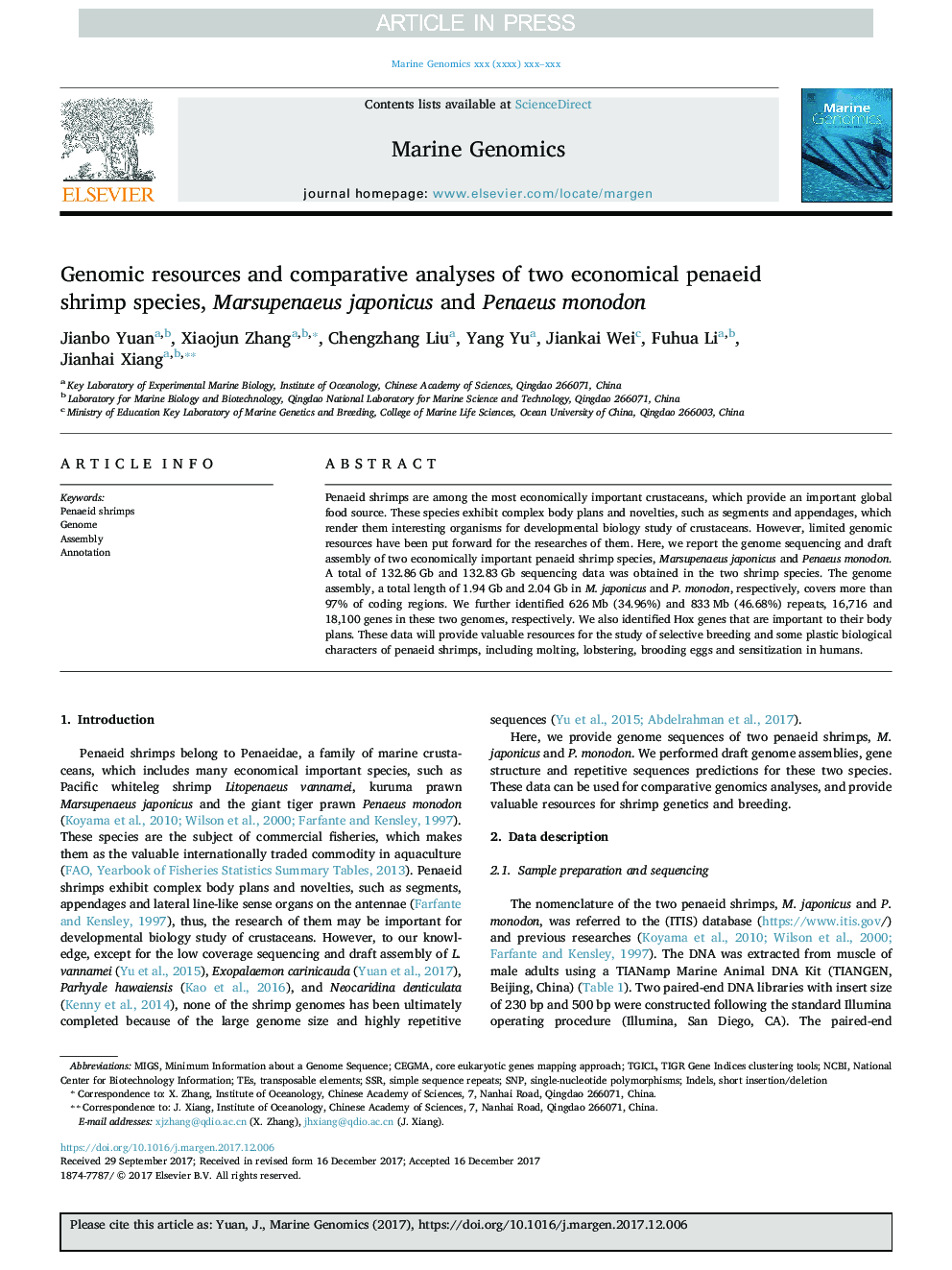| Article ID | Journal | Published Year | Pages | File Type |
|---|---|---|---|---|
| 8387824 | Marine Genomics | 2018 | 4 Pages |
Abstract
Penaeid shrimps are among the most economically important crustaceans, which provide an important global food source. These species exhibit complex body plans and novelties, such as segments and appendages, which render them interesting organisms for developmental biology study of crustaceans. However, limited genomic resources have been put forward for the researches of them. Here, we report the genome sequencing and draft assembly of two economically important penaeid shrimp species, Marsupenaeus japonicus and Penaeus monodon. A total of 132.86Â Gb and 132.83Â Gb sequencing data was obtained in the two shrimp species. The genome assembly, a total length of 1.94Â Gb and 2.04Â Gb in M. japonicus and P. monodon, respectively, covers more than 97% of coding regions. We further identified 626Â Mb (34.96%) and 833Â Mb (46.68%) repeats, 16,716 and 18,100 genes in these two genomes, respectively. We also identified Hox genes that are important to their body plans. These data will provide valuable resources for the study of selective breeding and some plastic biological characters of penaeid shrimps, including molting, lobstering, brooding eggs and sensitization in humans.
Keywords
Related Topics
Physical Sciences and Engineering
Earth and Planetary Sciences
Earth and Planetary Sciences (General)
Authors
Jianbo Yuan, Xiaojun Zhang, Chengzhang Liu, Yang Yu, Jiankai Wei, Fuhua Li, Jianhai Xiang,
